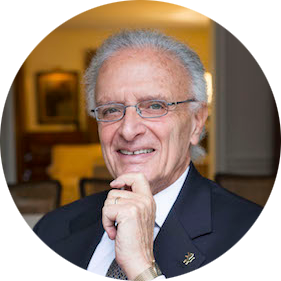
A Plague of Confusion:
Coronavirus and Passover
David R. Blumenthal
Pixabay (License)
This article is part of our “Reflecting on COVID-19” series.
If you’d like to check out other articles in this series, click here.
As the holiday of Passover approaches, we think of the last days of the Jews in Egypt. We think of Pharaoh faced with a slave-insurrection and a series of plagues that ravage his land. We think of his scientists/magicians trying to figure out just what these plagues are and how to counter them. We think of his economic and political advisors who are counseling him to just rid himself of this problem and then to rebuild the Egyptian economy. And we ponder the Egyptian leadership and people confronting a pandemic that strikes only the first born of each family and each animal.
Today, only the most extreme political thinkers are calling for a change in the total social structure of our society. The rest of us are steeped in a plague of confusion, of simply not knowing what is true and whom to trust among our scientists, health advisors, and political and economic leaders.
The Statistics
The total number of cases
What does the number of cases mean? It is only cases that have been tested and proved positive. How many negative test results have there been? What about countries that are not testing and hence not reporting? What about countries that are, or are not, testing but are issuing statistics that are false?
The total number of dead
How accurate are these? Did they all die of coronavirus? What about those who died who are not recorded? Or which are falsely reported to keep down the death rate?
The predictions
How accurate are the statistical projections? If they are accurate, why are some predictions so different from others? Who builds and who verifies the models used to make the predictions? How much do we know about the statistics of previous infections? How accurate were those statistics? How accurate were the predictions based on those statistics? How applicable are the models from previous infections to this coronavirus?
The Science

The virus
How is it transmitted? How does it kill people? Why is it not killing more people? Why has it taken us so long to get scientific answers to these questions?
The cure and prevention
Why, after being alerted in late December, do the scientists not yet have a medicine that will stop the virus from killing people? Or that will kill the virus itself? What are the procedures for developing a vaccine? Why do they take so long?
The public health bureaucracy
What kinds of masks are good? Who should wear them? Who interprets the statistics? Who explains what they mean? Why did the CDC send out a test that didn’t work? Why did it prevent the development of alternate testing? Who approves tests, medicines, and equipment? Why have the regulatory procedures inhibited, and not encouraged, new tests, medicines, and equipment?
The Government
The administrative bureaucracy
Who is responsible for stockpiling tests, drugs, and equipment? Is it the federal, state, or local authorities? What were the stockpiling goals? Were they achieved? If they were inadequate, why was that so? Could any society be “prepared” for an emergency of this magnitude? Who is responsible for distributing, i.e., the logistics of, tests, drugs, equipment? Is it the federal, state, or local authorities? Or is it a function of market demand? Who is supposed to decide what goes where, how much goes, and how to move it?
Who is responsible for maintaining production capacity? Who sets the goals? Who enforces them? Who calls out the National Guard, the President or the Governors? Who determines their role in this kind of situation? When, and for what, should the President call out the Armed Forces? Do any of the economists know what is happening, why, and how to adjust it? Can the government issue money and credit without limit? Why can’t the government quickly distribute money?
The politicians
How are they supposed to lead a nation based on data provided by scientists and economists who, themselves, do not have determinative answers? Is there, actually, a good answer to the tension between halting an economy by shutdown and preserving the health of the people?
Why are politicians trying to calm the public about health and economic issues when there are simply no clear data and no clear answers? Don’t politicians appear false when they downplay the seriousness of the situation and the tentativeness of the solutions that are being proposed?
Politicians live by blaming other politicians. Isn’t there a time when they should work together? Why are they blaming and scapegoating each other? What kind of example does that set for the people?
The Media
The media has chosen to shape its news according to its view of the situation. As a result, the media supports politicians with whose views they agree, giving coverage and shaping “analyses” to fit their views. Why doesn’t the media uncover the plague of confusion and just set that before the public with ample criticism of all sides?
What role does the media play in this situation? Is it to reveal all the holes in the story that the scientists, the bureaucracies, and the politicians are trying to weave? Or is it the role of the media to keep the public calm? If so, which story will prevent the public from dangerous or destructive behavior? What is served by multiplying stories of tragedy and the failure of various entities?
This story will not end in a supernatural redemption. We will have to work our way through this together.
This story will not end in a supernatural redemption. We will have to work our way through this together. Less pompous self-righteousness and a great deal less blaming and scapegoating might help a great deal. Meanwhile, let us do our best to keep ourselves out of an already overwhelmed health care system and let us praise the courageous health care givers, and those who support them, as they care for the sick and dying; and the supermarket workers, and the drivers, and the pharmacists as they keep us supplied with what we need; and the law enforcement and firefighters who continue to keep us safe. ♦

David R. Blumenthal teaches and writes on constructive Jewish theology, medieval Judaism, Jewish mysticism, and holocaust studies. He is the author of numerous scholarly articles and eleven books, a Senior Fellow at the Center for the Study of Law and Religion, and was the Jay and Leslie Cohen Professor of Judaic Studies at Emory University.
Recommended Citation
Blumenthal, David R. “A Plague of Confusion: Coronavirus and Passover.” Canopy Forum, April 6, 2020. https://canopyforum.org/2020/04/06/a-plague-of-confusion-coronavirus-and-passover/

